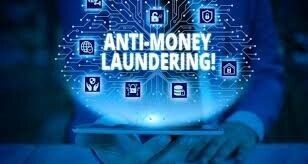Anti-Money Laundering

Bookkeeping is a regulated industry which means we are legally required to follow The Money Laundering, Terrorist Financing and Transfer of Funds (Information on the Payer) Regulations 2017 law which incorporates: The Proceeds of Crime Act (2002), The Terrorism Act (2000), The Money Laundering Regulations (2007).
Money laundering is the term used to describe the process by which criminals will try and conceal the origins of the proceeds of their crimes making it appear as if the proceeds were acquired legitimately. It is thought that money laundering could equate to around 5%* of global domestic product.
What Are Cashtrak's Requirements?
We are monitored by The Institution of Certified Bookkeepers and are required to put in place certain controls to help identify, prevent, and report money laundering offences
Most of what we have to do is behind the scenes and you won't notice, such as staff training, policies, procedures and entering in all clients and their PSCs (Persons of Significant Control) in to a database run by our governing body (GDPR applies to this database.) The compliance documents and procedures have to be reviewed at least annually.
Part of the regulations require us to undertake due diligence during onboarding new clients and at least annually thereafter. Part of the due diligence is to 'prove' the identity of our client(s).
Limited companies - we are required to 'prove' the identity of all Persons of Significant Control, most PSCs are those who:
hold more than 25% of shares in the company
more than 25% of voting rights in the company
the right to appoint or remove the majority of the board of directors.
Trusts and charities - we are required to 'prove' the identity of all trustees.
We ask for 2 pieces of ID (HMRC dictate which ID can be accepted) to 'prove' the identity, we have to enter these details on to our money-laundering supervisor's database and we use Veriphy as an electronic check to satisfy 'proving' identification.
If a client moves (or any of the PSCs or trustees) move properties (business or personal), we are required to request ID with the new address. Each year we have to perform an annual review of all of our compliance documentation including ID which has to be in date. Therefore you are likely to hear from us on an annual basis to update your ID.
We understand that it can be time consuming and frustrating having to provide ID (especially where there may be many directors or trustees) however this is outside of our control, we are unable to start working without this information.
Data is protected on these systems and will only be used for anti-money laundering purposes. We are monitored by the ICB who are an HM Treasury appointed supervisory authority.
Acronyms
ICB - Institute of Certified Bookkeepers, our governing body (click here for more on the ICB)
AML - Anti-Money Laundering
PSC - Person(s) of Significant Control A person with significant control. They are someone who owns or controls the company. They're sometimes called 'beneficial owners'. They:
- hold more than 25% of shares in the company
- more than 25% of voting rights in the company
- have the right to appoint or remove the majority of the board of directors
Approved ID
We require one form of identification from Group A and one from Group B. As driving licences and passports tend to have longer validity it is recommended that we are sent these so we won't have to ask you annually for ID as the rest of the ID will go out of date quickly.,
Group A
Passport
Driving licence
Group B
Driving licence (if not used in group A)
Bank statement (to their home address dated within the last 3 months)
Utility bill (to their home address dated within the last 3 months)
Land line telephone bill (to their home address dated within the last 3 months)
Your most recent Council tax statement
Birth certificate
